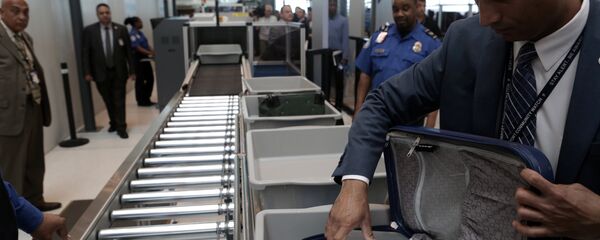On Monday, The New York Times reported that the Pentagon's efforts to disrupt the Daesh terrorists' ability to communicate, to spread propaganda, and attract new recruits online have been a flop, with new communications and propaganda hubs appearing just as quickly as they are destroyed.
Asked for comment, Dr. Lewis, a senior vice president at the Center for Strategic and International Studies, a DC area think tank, told Sputnik that people should come to terms with the fact that the fight against the terrorist group's presence, including in cyberspace, will be a long and difficult one.
The analyst emphasized that the US wasn't the only country making an effort to intervene against Daesh propaganda online. "It's just a very difficult problem, because there are many people, there are many opportunities. If you look at China, if you look at the UK – very difficult tactics, but equally ineffective. We're just not going be able to squash these people in short order. This generation has figured out how to use the internet, and they seem to enjoy doing it."
Asked whether a lack of cooperation may be to blame, Lewis suggested that the real problem was that Daesh internet operators enjoy sanctuaries in countries where governments have limited control, including Syria and Yemen. "So in some ways we don't want to disconnect cyber and physical; it's when the physical locations that they operate from are finally [liberated] that we'll see this go away or at least greatly reduced."
Lewis also noted that while the countries fighting Daesh shouldn't give the terror group an untrammeled and unchallenged space online, "we shouldn't have very high expectations about how this will actually work. And when you look at the different terrorist operations that have been mounted – in Brussels, Paris or London, the web is only part of what is involved in this. It's the beliefs of some young people, it's the desire of the Daesh leaders to cause havoc in Europe. These are things that the web plays a part in, but it's not the magic cure for this."
As for the new tools and techniques which US cyber warfare specialists may use to fight the terrorists' online presence, the observer noted that the main ones would undoubtedly be aimed at disruption. "This is useful; other countries have done this too. But it doesn't stop [them], because these are very inventive, innovative people who just move to a new mode of attack. The Chinese have tried wide scale blocking; that hasn't worked. We probably need to go through a period of experimentation. One idea that I've heard from colleagues is…not to have government do [anti-Daesh propaganda], but to do kind of an open source contest – to put out a contest on YouTube or the web, and let people come up with counter-Daesh propaganda. That might be more effective, and cheaper."
"I think we need to get away from our traditional mode of 'governments must take action' and think a little bit differently – about how we can enlist societies, individuals, young people, to fight Daesh," Lewis concluded.




